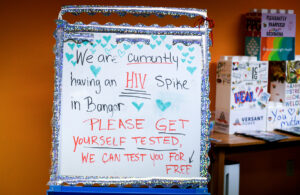
DURHAM, NC – New research challenges the age-old adage that forgiving means forgetting. A study led by Duke University reveals that while forgiveness can alleviate present emotional suffering, it does not erase memories of past wrongs.
Immediate Impact: Forgiveness and Memory
Conventional wisdom suggests that forgiving someone who has wronged us helps to forget the pain they caused. However, research conducted by Felipe De Brigard and his team at Duke University indicates that memories of transgressions remain vivid, even after forgiveness.
“There are no differences whatsoever in those emotional and spatial aspects of our memory after we forgive,” De Brigard states. “All the difference is in the feeling that those memories bring about at the time of retrieval.”
Key Details Emerge: Study Findings
The study involved participants recalling and writing about personal experiences of harm, often involving betrayal in close relationships or workplace settings. Participants assessed the moral gravity of the transgressions and whether they had forgiven the perpetrator.
Subsequent analyses revealed that those who forgave retained detailed memories of the events, including emotional pain. Yet, they reported less negative emotion when recalling these memories, suggesting a healing effect through forgiveness.
“I thought that people were going to retroactively remember the emotion as being less negative,” De Brigard admits, “But that didn’t happen at all.”
Expert Analysis: Forgiveness Without Forgetting
De Brigard’s findings suggest that forgiveness alters our emotional relationship with past events rather than erasing them. This could reassure individuals concerned about justice or accountability when considering forgiveness.
“We still consider the people that wronged us as being culpable and morally responsible for what happened to us,” De Brigard explains.
By the Numbers: Emotional Relief and Benevolence
Participants who experienced emotional relief through forgiveness were more likely to feel benevolent towards the transgressor and less inclined to seek revenge, regardless of the transgression’s severity.
“Forgiveness might open the door for people that want the emotional change,” De Brigard notes.
Background Context: The Science of Forgiveness
Forgiveness is increasingly viewed as a memory recoding process, potentially involving a shift in perspective on harmful events. Programs designed to cultivate forgiveness aim to help individuals process past hurts and improve mental health.
De Brigard emphasizes that forgiveness should not be forced. Some may choose not to forgive due to the severity of harm, while others may seek forgiveness for emotional release.
What Comes Next: Cultivating Forgiveness
For those inclined to forgive, techniques such as reappraisal or contextual understanding can aid in processing experiences and fostering emotional healing. This approach aligns with broader initiatives to promote forgiveness as a tool for personal growth and relationship improvement.
As research continues to explore the nuances of forgiveness, individuals are encouraged to consider its potential benefits and limitations in their personal contexts.






